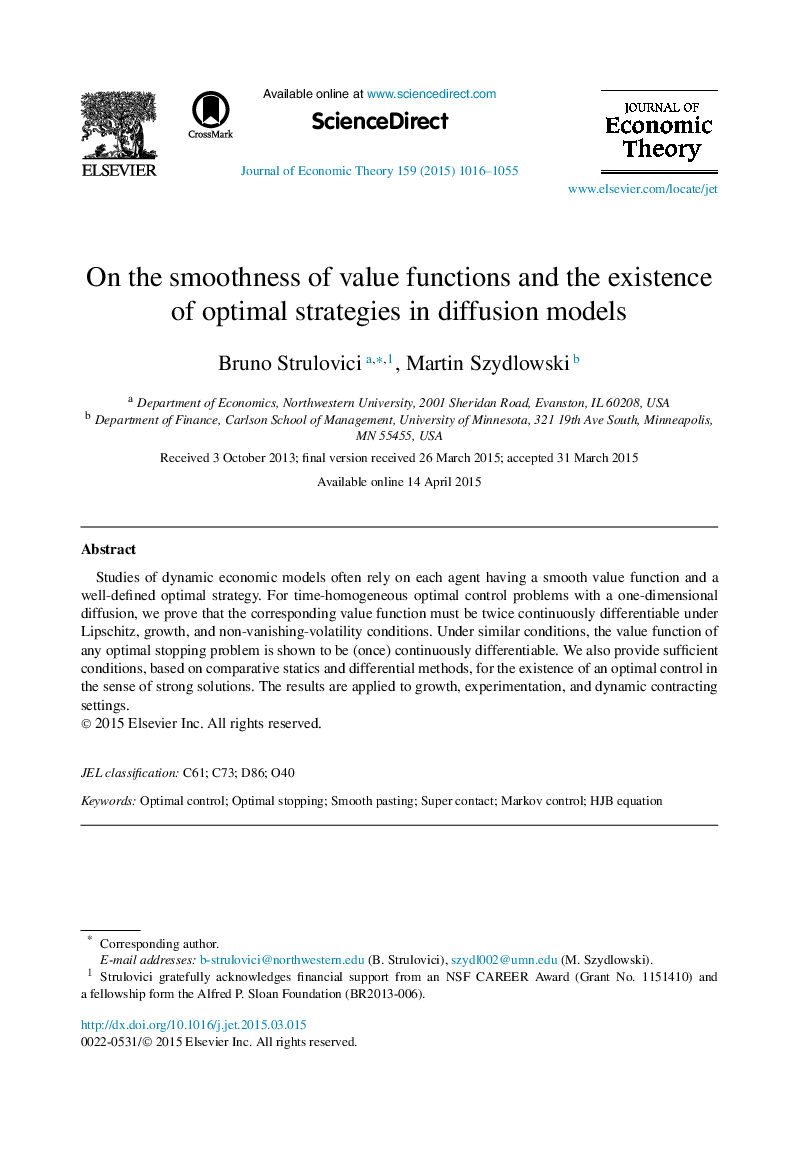| Article ID | Journal | Published Year | Pages | File Type |
|---|---|---|---|---|
| 956590 | Journal of Economic Theory | 2015 | 40 Pages |
Abstract
Studies of dynamic economic models often rely on each agent having a smooth value function and a well-defined optimal strategy. For time-homogeneous optimal control problems with a one-dimensional diffusion, we prove that the corresponding value function must be twice continuously differentiable under Lipschitz, growth, and non-vanishing-volatility conditions. Under similar conditions, the value function of any optimal stopping problem is shown to be (once) continuously differentiable. We also provide sufficient conditions, based on comparative statics and differential methods, for the existence of an optimal control in the sense of strong solutions. The results are applied to growth, experimentation, and dynamic contracting settings.
Related Topics
Social Sciences and Humanities
Economics, Econometrics and Finance
Economics and Econometrics
Authors
Bruno Strulovici, Martin Szydlowski,
